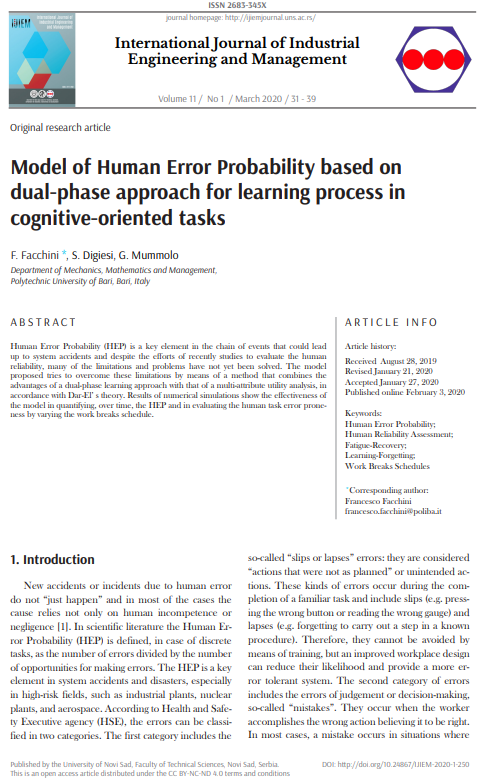Model of Human Error Probability Based on Dual-Phase Approach for Learning Process in Cognitive-Oriented Tasks

Published 2020-03-30
abstract views: 43 // FULL TEXT ARTICLE (PDF): 0
Keywords
- Human Error Probability,
- Human Reliability Assessment,
- Fatigue-Recovery,
- Learning-Forgetting,
- Work Breaks Schedules
How to Cite
Copyright (c) 2023 International Journal of Industrial Engineering and Management

This work is licensed under a Creative Commons Attribution 4.0 International License.
Abstract
Human Error Probability (HEP) is a key element in the chain of events that could lead up to system accidents and despite the efforts of recently studies to evaluate the human reliability, many of the limitations and problems have not yet been solved. The model proposed tries to overcome these limitations by means of a method that combines the advantages of a dual-phase learning approach with that of a multi-attribute utility analysis, in accordance with Dar-El’ s theory. Results of numerical simulations show the effectiveness of the model in quantifying, over time, the HEP and in evaluating the human task error prone- ness by varying the work breaks schedule.
Article history: Received (August 28, 2019); Revised (January 21, 2020); Accepted (January 27, 2019); Published online (February 03, 2020)

